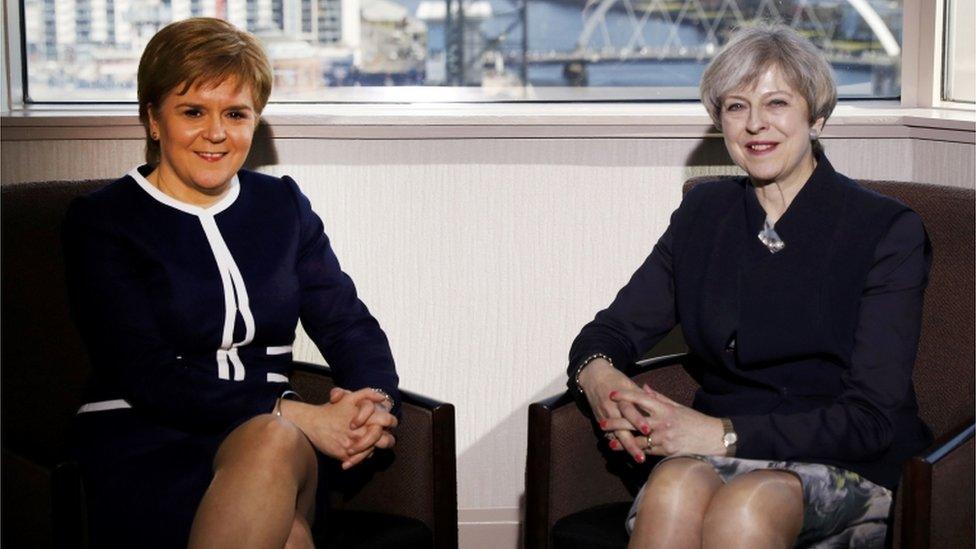Solemnity and steel - but what did it tell us?
- Published
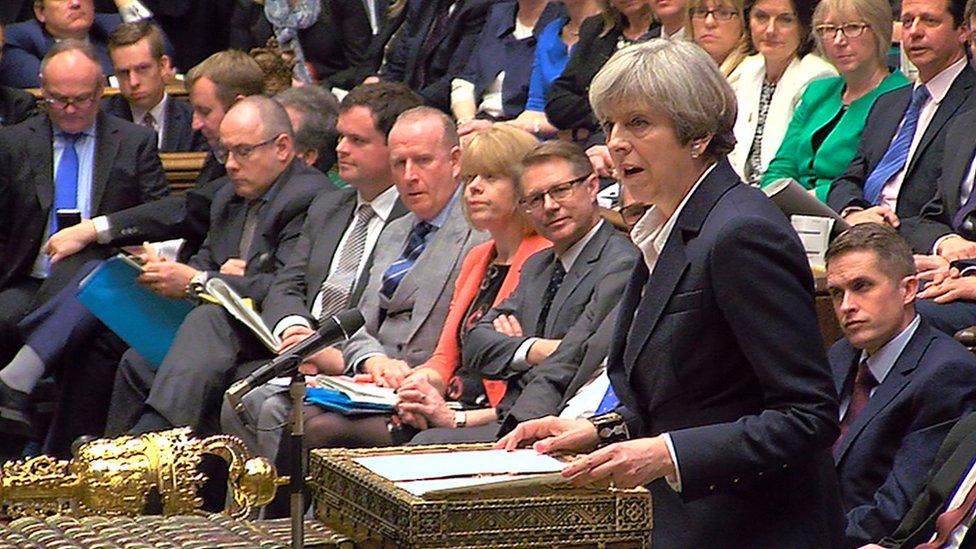
There were a few comical moments. OK, one or two. OK, one. That came when the Prime Minister declared that the world needed "liberal democratic" values, as protected by the members of the European Union.
Unaccountably, the House chortled. Tim Farron - who is both Liberal and Democratic, albeit in capitals - smiled benignly. And was that a cheeky wink? It was.
But, mostly, the mood was solemn as Theresa May confirmed that she has formally signalled Britain's departure from the European Union.
Solemn, however, comprises a range of emotions. Brexiteers were solemnly gleeful. For Labour, Jeremy Corbyn was solemnly compliant, arguing that the people must be heeded. The SNP's Angus Robertson was solemnly irate. Theresa May? Just solemn.
The statement - and the Article 50 letter - also eschewed rampant rhetoric. Indeed, the tone from the PM was, within limits, emollient. She even cited the democratic engagement in EU economic policy which the UK will shed; plainly an appeal to the remaining 27 to be kind and play nicely.
There was no mention of immigration - except obliquely in that reference to the four freedoms implicit in the single market which obliged Britain to leave said vehicle for trade. One of the freedoms is liberty of movement for people.
But there was steel too. Repeated references to security and defensive difficulties if a common post Brexit agreement is blocked. Intimidation? Not a bit of it, says the UK government.
And there was a firm insistence upon one element: that the talks about Britain's future relations with the EU must run in parallel with negotiations about the exit deal.
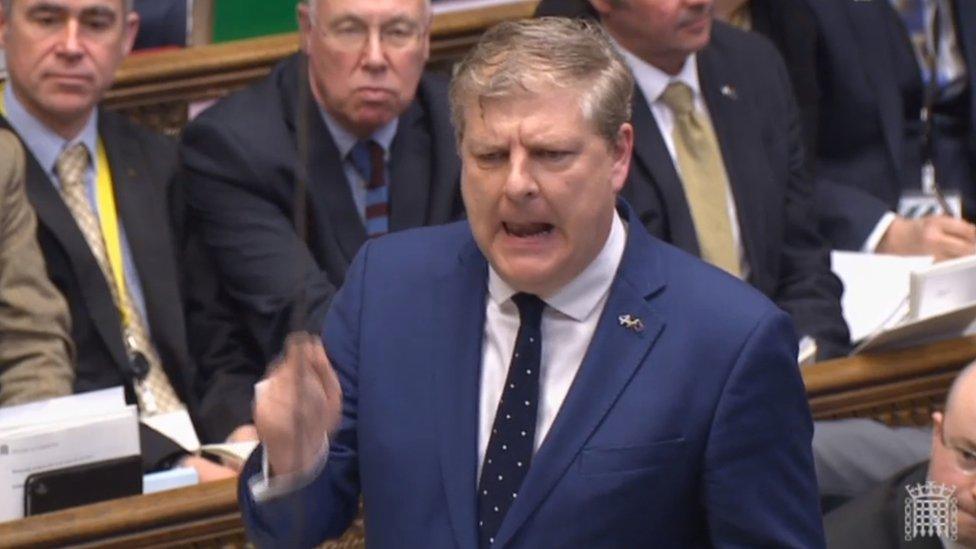
Which brings us to Scotland. Angus Robertson offered a fine display of controlled anger. Barracked from the Conservative benches, he suggested to them that they might usefully consider how such behaviour looked to the watching public.
"We have televisions in Scotland", he told them, with scathing irony. (He might have added that a Scot invented the telly, the bairdboard caricatured by James Joyce. But no matter.)
Mr Robertson accused the prime minister of reneging upon a promise to reach an agreement with the devolved administrations before triggering Article 50. As he did so, a sedentary chorus of colleagues around him could be heard translating that accusation into more blunt terms, charging the PM with lying.
Scotland and Maidenhead
The prime minister stood her ground. The promise, she said, had been to consult the devolved governments, including Scotland. That had been done. It was now for the UK government to pursue the UK's departure from the EU, in the interests of the UK as a whole.
Mr Robertson reminded her that every part of Scotland had voted to remain. It was perhaps a little unwise of the PM to respond to this by proclaiming: "My constituency voted to remain!"
I'm sure that Maidenhead, her seat, is a splendid place, its predecessor borough mentioned in the Domesday Book, no less. But, last time I checked, it was not a signatory of the Treaty of Union. Scarcely comparable.
Still, moving on, Mrs May had a wider point to make - which she made with vigour and determination. It was that Scotland voted in 2014 to stay within the United Kingdom - and that the UK as a whole had now voted to leave the EU.
"We are one United Kingdom", she declared. Mr Robertson dissented, vigorously.
Back in Scotland, we now await the despatch of another letter; the Section 30 demand from FM to PM, demanding the powers to hold an independence referendum. Nicola Sturgeon and her ministers say the Article 50 timetable confirms that said referendum could usefully be held towards the end of the negotiation period.
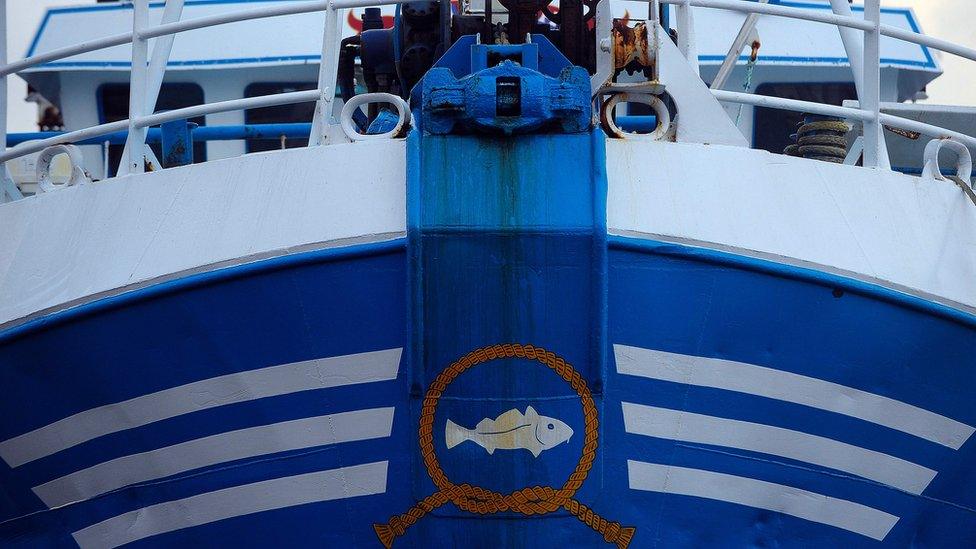
Was there a hint that new powers over fishing and agriculture would be coming to Holyrood?
The prime minister and Conservative colleagues dissent. They say that they will not even contemplate talk of a referendum until Brexit is signed, sealed and, more importantly, settled down. That it would be an unfair, unclear choice for Scotland, otherwise.
To stress, they have been saying similar things for some time. (See my posts, discussing that point, earlier this month, on the 16th and 17th.) Whatever, that would put off a potential referendum - under Tory thinking - until 2021 at the earliest.
So what can the Scottish government do? We will learn more from Nicola Sturgeon after the Easter recess. That is, if the UK government does not back down in the meantime.
But, as trailed here previously, one option includes less than enthusiastic compliance with the Brexit process at the points where Scottish consultation is required. UK government sources say they are ready for that prospect - and that the loser would be the Scottish government. We shall see.
And there's more. We will learn tomorrow of plans to repatriate the acquis communautaire: that is, turning the body of EU law into British statute.
Theresa May assured Mr Robertson that Holyrood would end up with more powers. But which, how and when?
The UK government's thinking is that potentially devolved issues would go initially into a "holding pattern", pending their ultimate destination.
Powers would return initially to the departing member state, the UK. Then they could be despatched, as appropriate, to Scotland and the other devolved territories.
That might happen at differential speeds. Justice powers, for example, might be devolved speedily. More complicated matters, like environment statutes, might take longer.
Then there is ag and fish. Will those powers go straight to Holyrood, matching existing devolution? Up to a point, Lord Copper. The current UK thinking is, indeed, to devolve agriculture and fisheries - or those bits presently held in Brussels.
But that would be accompanied by discussions over creating UK-wide arrangements. In effect, cross-border common agricultural and fisheries policies, covering for example animal health and international fisheries marketing.
Stand by for controversy on that. Hey, stand by for controversy on everything.
- Published28 March 2017
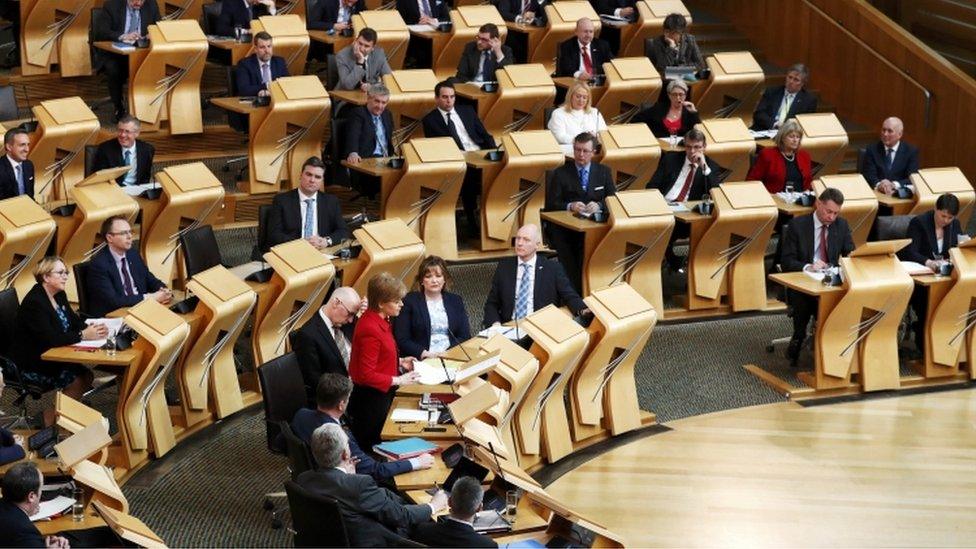
- Published28 March 2017
- Published27 March 2017
